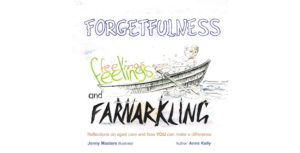
New standards call for dementia-friendly design
The design of a building can change the way we engage and interact, move around, and even our mood.

The ‘salutogenic approach’ has enormous relevance in aged care, particularly in the care of people with dementia.
The Royal Children’s Hospital in Melbourne was designed with a clear intent: to create a physical environment that can assist with recovery and good health.
A giant fish tank is used as a central point and way finder. Meerkats live on site. Murals, inspired by nature and animals, are used to help visitors navigate floors and wards, with different colours on each floor and different animals representing each wing of a ward.
Research into the effects of design on medical outcomes was key to redefining this space; moving away from a traditional clinical environment towards one that is child-friendly, providing context and promoting wellbeing in a place where sick children are cared for.
This is salutogenesis in action. And the ‘salutogenic approach’ has enormous relevance in aged care, particularly in the care of people with dementia.
Share
Tags

The design of a building can change the way we engage and interact, move around, and even our mood.

A collection of real people’s stories from author Anne Kelly’s almost 30 years’ of experience working in aged and dementia care